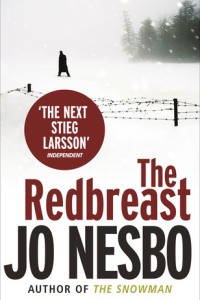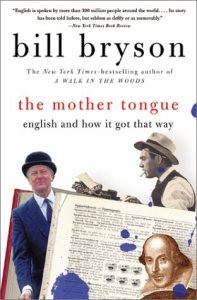 Title: The Redbreast (Goodreads)
Title: The Redbreast (Goodreads)
Author: Jo Nesbø
Translator: Don Bartlett
Series: Harry Hole #3
Published: Harvill Secker, 2000
Pages: 368
Genres: Crime
My Copy: Personal Copy
Buy: Amazon (or visit your local Indie bookstore)
When they advertise Jo Nesbø as ‘The Next Steig Larsson’, I’m inclined to pass on this author. But since a lot of people seem to be raving about this author, I thought I better check him out, especially when they class his Harry Hole series as hard-boiled. I’ve found the only reason they are calling him the next Larsson is simply because he is another Scandinavian crime writer; which means some overly graphic murders, Nazis and an expected twist. The Redbreast is the third book in the Harry Hole novel but the first available in English. Hole is investigating neo-Nazi activity which leads him to further explore Norway’s activities on the Eastern Front during WWII.
Throughout the book it switches between telling the story of Harry Hole in 1999 and the man he is hunting Daniel Gudeson during the World War II. I like how Nesbø switched between the two times and characters to flush out the back story that was leading up to a much bigger current day threat. But that is where I stopped liking this book; I just felt this book was generic and too predictable for my liking. I want to be shocked, excited and enjoy myself when reading crime novels; one out of three just doesn’t cut it.
Now to address the genre issue; Harry Hole could be classed as a hard-boiled detective, as he drinks, smokes and seems to be a very bitter man. However, this novel seems to missing some of the elements that makes hard-boiled novels what they are; for starters where was the dark and gritty realism that I’ve come to love in pulp novels. Also the book was missing a femme fetale as well as the strong dialogue with hints of wittiness and/or irony. This felt more like the generic bestseller crime formula and if we are going to call Jo Nesbø ‘hard-boiled’, we would have to let Michael Connelly in as well; and we don’t want that.
While this was in fact a fun book to read, I went into this book expecting something more pulp like and ended up getting generic. I’m sure there are plenty of people that will love this book, just don’t expect pulp; you’ll be sadly disappointed. If you are interested in knowing more about pulp fiction, check out my blog entries on pulp for recommendations.

 Title: The Man in the High Castle (
Title: The Man in the High Castle ( Title: The Stranger (
Title: The Stranger ( Title: Alice's Adventures in Wonderland (
Title: Alice's Adventures in Wonderland ( Title: Mother Tongue (
Title: Mother Tongue ( Title: Animal Farm (
Title: Animal Farm ( Title: Foucault's Pendulum (
Title: Foucault's Pendulum ( Title: The Catcher In The Rye (
Title: The Catcher In The Rye ( Title: Wuthering Heights (
Title: Wuthering Heights ( Title: Brave New World (
Title: Brave New World (